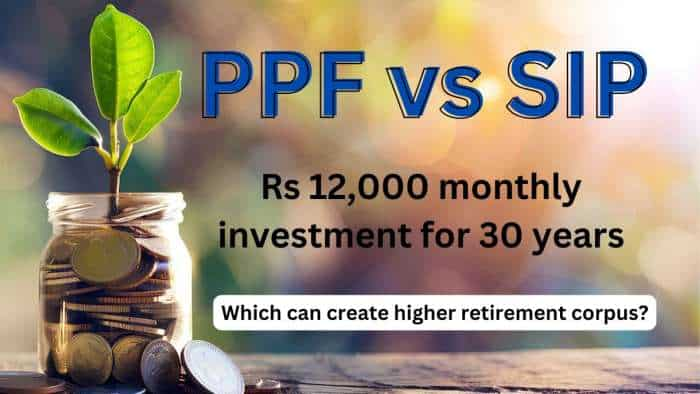Income Tax Slab: Alert! Don't make a mistake! Here is what taxpayers must do under new rules
Income Tax Slab: In Budget 2020, FM Sitharaman gave income taxpayers an option to either choose the old income tax slab and get benefits of Section 80C tax exemption or opt for a new income tax slab without these benefits.

Income Tax Slab: In her Union Budget 2020, the Finance Minister Nirmala Sitharaman gave income taxpayers an option to either choose the old income tax slab and get benefits of Section 80C tax exemption or opt for a new income tax slab without these benefits. In old tax slab, there is zero tax on an annual income up to Rs 2.5 lakh while in new tax slab, there is zero income tax on an annual income up to Rs 2.5 lakh along with Rs 12,500 income tax rebate making it zero income tax on annual income up to Rs 5 lakh.
So, who should opt for new rules and who should opt for old ones? Those who are in the early phase of their career and have lesser tax-saving investments can opt for the new income tax slab while those who have good amount of tax-saving investments and have availed home loan, etc. can go for the old income tax slab, say tax and investment experts. However, they also say that there are some benefits that one can claim even after opting for the new income tax slab.
Speaking on the new income tax slabs 2020, Sunil Garg, a tax and investment expert said, "According to the Money Bill 2020, those who are living in a rented house, can still claim the standard deduction for their house rent. Apart from this, they can claim tax exemption under Section 80CCD(2) on the recruiters' deposit in the NPS scheme." Garg said that in a new income tax slab, salaried people need to asses their investments and then only opt for either of the two income tax slabs being offered to them.
See Zee Business Live TV streaming below:
While presenting the Union Budget 2020, FM Sitharaman had said that in the new income tax slab, the rates under new income tax regime are - zero tax for income up to Rs 2.5 lakh; 5% for income between Rs 2.5 lakh and up to Rs 5 lakh; 10% for income between Rs 5 lakh and up to Rs 7.5 lakh; 15% for income between Rs 7.5 lakh and up to Rs 10 lakh; 20% for income between Rs 10 lakh and up to Rs 12.5 lakh; 25% for income between Rs 12.5 lakh and up to Rs 15 lakh; 30% for income above Rs 15 lakh.
Speaking on the standard rebate of Rs 12,500 in income tax outgo, Jitendra Solanki, a SEBI registered tax and investment expert said, "There is Rs 12,500 annual rebate on on income tax outgo that makes zero income tax on an annual income up to Rs 5 lakh as Rs 12,500 in come tax becomes null and void on the Rs 2.5 to Rs 5 lakh slab which is 5 per cent."
Solanki said that conveyance and other travel expenses have also been exempted from taxable income. He said, "As per the latest CBDT (Central Board of Direct Taxes) norms, a salaried person's expenses for company's work is exempted from income tax and that means conveyance, travel expenses and transfer allowance and expenses done by the employee while shifting from one place to other due to transfer, is all income tax exempted.
Get Latest Business News, Stock Market Updates and Videos; Check your tax outgo through Income Tax Calculator and save money through our Personal Finance coverage. Check Business Breaking News Live on Zee Business Twitter and Facebook. Subscribe on YouTube.
RECOMMENDED STORIES

Top 7 Small Cap Mutual Funds With Highest SIP Returns in 3 Years: Rs 17,777 monthly SIP investment in No. 1 fund has turned into Rs 13,23,981

SIP in Stocks For New Year 2025: Market guru Anil Singhvi recommends 1 largecap, 2 midcap scrips to buy in dips; note down targets

PPF vs SIP: Rs 12,000 monthly investment for 30 years; see which can create higher retirement corpus

Power of Rs 15,000 SIP: How long it will take to achieve Rs 7 crore corpus? See calculations to know
03:05 PM IST












 Zomato gets Rs 803.4 crore tax demand from GST authorities
Zomato gets Rs 803.4 crore tax demand from GST authorities  Income tax refunds jump 46.3% to Rs 3.04 lakh crore in April-November
Income tax refunds jump 46.3% to Rs 3.04 lakh crore in April-November No proposal on income tax relief for senior citizens under consideration: Centre
No proposal on income tax relief for senior citizens under consideration: Centre  Income tax return filer base up 2.2 times in 10 years, 5 times growth in Rs 50 lakh-plus income category: Sources
Income tax return filer base up 2.2 times in 10 years, 5 times growth in Rs 50 lakh-plus income category: Sources  This is India's only tax-free state, residents earn crores without paying Income Tax
This is India's only tax-free state, residents earn crores without paying Income Tax